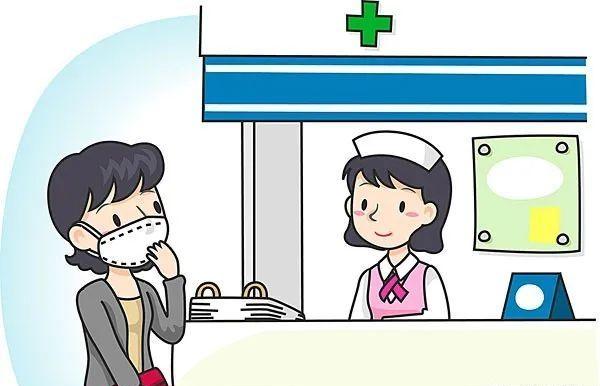Young women, who accidentally found that their hands would shake involuntarily, felt panic and sweated, went to the hospital for examination, and were diagnosed with Hashimoto's thyroiditis, the doctor explained, those symptoms, are related to hypothyroidism. So, the question is, is Hashimoto's thyroiditis and hypothyroidism 1 thing? How is this disease caused? How should it be prevented and treated? Let's solve your doubts now.

Hashimoto's thyroiditis, also known as chronic lymphocytic thyroiditis, abbreviated as HT, is a disease that was first discovered by Dr. Hashimoto in Japan in 1912 and received its name. Studies have found that Hashimoto's thyroiditis is an important cause of hypothyroidism, but this disease is not the same thing as hypothyroidism. Because the cause of Hashimoto's thyroiditis is autoimmune function, and the problem of hypothyroidism comes from the thyroid gland, this is the fundamental difference between the two.
The cause of Hashimoto's thyroiditis is not very clear, and it is generally believed that there are three main pathogenesis factors. The first is genetic factors. Relevant studies have shown that the risk of Hashimoto's thyroiditis is 9 times higher than that of the average person in the first degree of relatives of HT patients. The exact predisposing factors are human leukocyte antigens and cytotoxic T lymphocyte-associated antigens. In addition, HT not only has a tendency to have a family cluster, but also, as long as the parents have suffered from thyroid diseases, such as hyperthyroidism, hypothyroidism, goiter, thyroid nodules, the risk of offspring suffering from Hashimoto's thyroiditis, will increase. Therefore, the offspring of patients with thyroid disease are the focus of prevention.
The second cause of Hashimoto's thyroiditis is environmental factors, including increased stress, prolonged stress or exertion, and bacterial or viral infections of iodine and selenium intake levels. The third cause is an autoimmune factor, characterized by the presence of thyroid peroxyperase antibodies and thyroglobulin antibodies. Hashimoto's thyroiditis can occur at all ages, but is more common in young and middle-aged women, and those with a family history of autoimmune diseases such as rheumatoid arthritis or lupus are at higher risk.
Hashimoto's thyroiditis occurs when the thyroid gland is attacked by its own chaotic immune system, causing the gradual destruction of thyroid cells. The specific process is roughly divided into 5 stages, the first step, is that the autoantibody level is still at a normal level, no symptoms. Step 2 is when the thyroid gland is attacked, but the basic function is within the normal range and the level of the associated antibody has been elevated. Step 3 is that antibody levels continue to rise and thyroid-stimulating hormone TSH rises, but T3 and T4 levels are still normal, in the subclinical hypothyroid stage, and symptoms such as fatigue, neck discomfort, hair loss, dry stools, and weight gain can occur. Step 4 is that the thyroid gland is severely damaged, the level of T3 and T4 decreases, and the female patient begins to have menstrual disorders, increased or decreased menstrual flow, and ovulation dysfunction. Step 5 is when other parts of the body are also affected by the autoimmune response and begin to develop autoimmune diseases, such as systemic lupus erythematosus, rheumatoid arthritis, Sjögren syndrome, and psoriasis. It can be seen that the sooner HT is dealt with, the better, and if it progresses to stage 5, the treatment will be quite difficult.
Hashimoto's thyroiditis has an insidious onset and a long course, so when manifestations of hypothyroidism are found, they should be checked promptly. Common signs and symptoms include fatigue and lethargy, chills, constipation, dry and pale skin, hoarseness, unexplained weight gain, muscle pain and stiffness, joint swelling and pain, lower extremity weakness, menstrual disorders and bleeding excess, depression. In addition, goiter, hypocardial function, and edema may occur. To confirm the diagnosis of Hashimoto's thyroiditis, it is necessary to check the relevant hormone and antibody levels, and perform a thyroid scan to confirm whether the thyroid gland is irregularly concentrated or sparse.
In response to Hashimoto's thyroiditis, the first thing is to observe, if there is no hormone deficiency, and the thyroid function is basically normal, it can be checked regularly. If a deficiency of thyroid hormones has occurred, alternative therapy such as levothyroxine is required. Notably, studies have found that intestinal permeability, or integrity and stability of intestinal structures, is essential for the prevention of Hashimoto's thyroiditis. Food intolerances or allergies can trigger an intestinal immune response. Macromolecular proteins in food, if not fully digested, may enter the bloodstream through the intestinal space, inducing an immune response. Therefore, it is necessary to avoid eating foods containing too many additives, control the intake of high-fat and high-sugar foods, and prevent intestinal microflora imbalance. In addition, it is necessary to develop good living habits, reduce mental stress, and if the family has thyroid disease, attention should be paid to regular examinations, timely detection of problems, and intervention.
Whoever loves, pass on health to whom.
Your health, my concern. Professionals observe health from a scientific and humanistic perspective, including a series of express reports, details, reminders, doubts, observations, opinions, historical stories, etc., with the content of the original works of the author Wei Hongling and the team. All forms of misappropriation and reproduction without permission will be refused, otherwise they will be prosecuted in accordance with relevant laws.